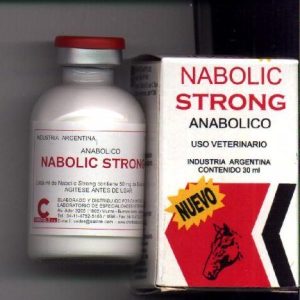Equine Veterinary Medicine USA
Veterinary medicine is the medical field that focuses on the diagnosis, treatment, and prevention of disease, injury, and other conditions in animals:
- Animal health: Veterinarians work to protect the health of animals, including domestic and wild animals.
- Human health: Veterinary medicine also helps prevent the spread of animal diseases to humans.
- Specialization: Veterinarians can specialize in the care of specific species, such as cats, dogs, birds, or cows. They can also focus on a particular area of care, like dentistry or surgery.
- Research: Some veterinarians conduct research.
- Teaching: Others go into teaching
These are used to manage pain, reduce inflammation, and improve mobility in horses suffering from injuries or chronic conditions such as arthritis.
- Phenylbutazone ("Bute"): A commonly used NSAID for pain relief in horses.
- Flunixin Meglumine (Banamine): Another NSAID, especially useful for colic pain and inflammation.
- Equioxx (Firocoxib): A COX-2 selective NSAID for managing pain from osteoarthritis.
These help improve joint function, alleviate discomfort from arthritis, and support healthy cartilage.
- Adequan: Injectable medication that helps prevent cartilage breakdown and improves joint function.
- Legend (Hyaluronate Sodium): Injectable hyaluronic acid used to improve joint lubrication and reduce inflammation.
- Glucosamine and Chondroitin: Common supplements available in oral form to support joint health.
Used to treat bone disorders such as navicular syndrome.
- Osphos (Clodronate Disodium): Injectable solution for the treatment of navicular syndrome in horses.
- Tildren (Tiludronate Disodium): Another bisphosphonate that helps with bone-related conditions.
These products help horses recover from physical exertion, muscle injuries, or metabolic issues.
- Sodium Hyaluronate: Commonly used to reduce muscle soreness and improve joint function.
- ATP Injections: To support energy metabolism and muscle recovery.
- Vitamin E and Selenium: Supplements that support muscle health and reduce oxidative stress.
Used to treat respiratory conditions such as COPD, asthma, or allergies in horses.
- Ventipulmin (Clenbuterol): A bronchodilator used to treat horses with airway obstructions.
- Dexamethasone: A corticosteroid used to reduce inflammation in the respiratory tract.
These are used to treat bacterial infections, abscesses, or other infections in horses.
- SMZ-TMP (Sulfamethoxazole and Trimethoprim): Commonly prescribed oral antibiotic.
- Penicillin: Injectable antibiotic for a wide range of infections.
- Gentamicin: An injectable antibiotic often used for serious infections.
These products are used to control internal parasites and worms.
- Ivermectin: A commonly used dewormer for many types of internal parasites.
- Fenbendazole: Used to treat various types of intestinal worms.
- Moxidectin: Effective against encysted small strongyles.
These are used to manage breeding and reproductive health in mares and stallions.
- Regu-Mate (Altrenogest): A hormone used to control estrus (heat cycles) in mares.
- Oxytocin: Used to stimulate uterine contractions during labor or to help with milk letdown.
Gastrointestinal medications for treating or preventing ulcers in horses.
- Omeprazole (GastroGard): A proton pump inhibitor used to treat gastric ulcers.
- Ranitidine: A histamine blocker that helps reduce stomach acid.
To replenish electrolytes and maintain hydration, especially in performance horses.
- Electrolyte Paste: Used to replace lost electrolytes during heavy exercise or in hot weather.
- Rehydratable Powders: Often mixed with water to maintain hydration levels.
Where to Buy Equine Medications:
- Veterinary Clinics: Your veterinarian can prescribe medications tailored to your horse's specific needs.
- Online Pharmacies: Reputable websites like Valley Vet Supply, Chewy, Heartland Vet Supply, and Allivet offer a wide range of equine medications for sale.
- Local Feed and Tack Stores: Some local stores may carry basic over-the-counter medications and supplements for horses.
- Specialized Equine Pharmacies: Some pharmacies specialize in compounding and selling horse medications directly to owners with veterinary prescriptions.
- Always consult with a veterinarian before administering any medication to ensure proper diagnosis and treatment.
- Some medications, especially performance enhancers, may be regulated in competitions. Make sure to check the competition rules for any banned substances.

Comments
Post a Comment